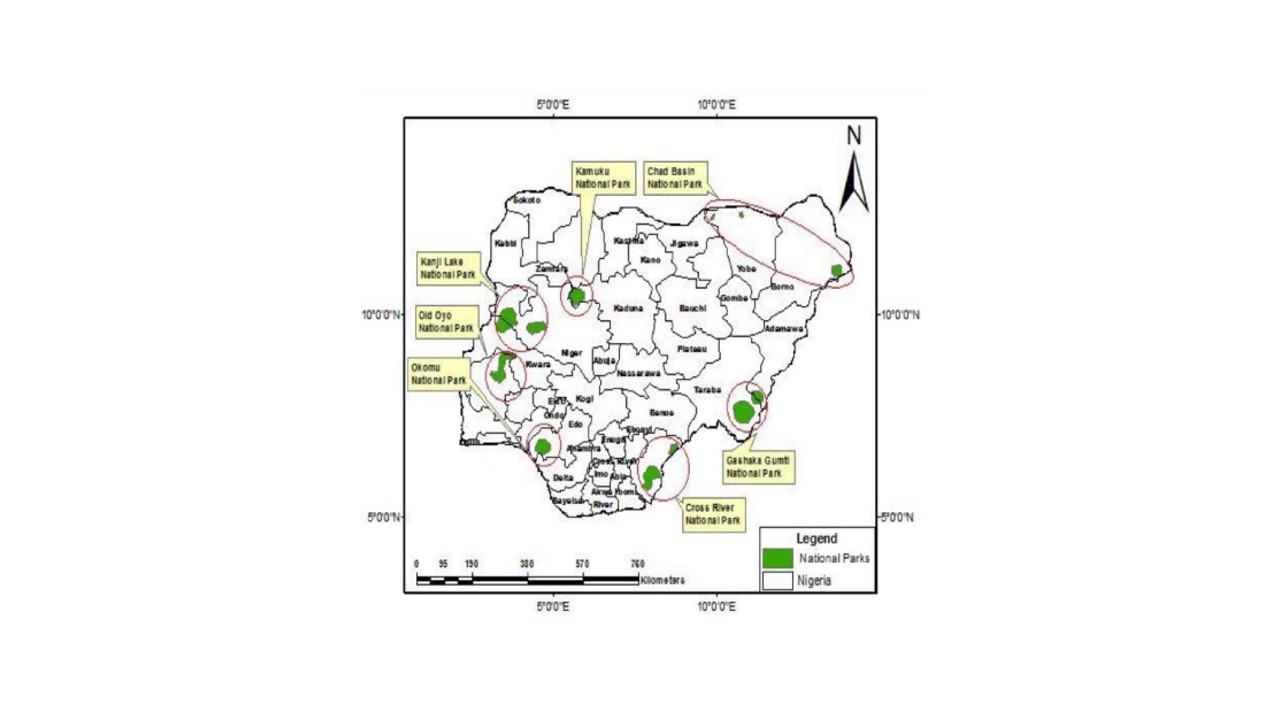Ecotourism in Nigeria, challenges and prospects: a review
DOI:
https://doi.org/10.54117/gjpas.v1i1.3Keywords:
Ecotourism, Wildlife, Nigeria, National parks, ReservesAbstract
Ecotourism is a portmanteau word made from ecology and tourism. It fully means ecological tourism commonly referred to as ecotourism, which is a field of study is considered as a sub-component of sustainable tourism. Ecotourism’s potential is an effective tool for sustainable development which is why developing and third world countries are now embracing it and making it a tool in their conservation strategies and economic development. Nigeria is blessed with a lot of wildlife which technically includes; vegetation, insects, spiders, birds, reptiles, fish, amphians and mammals. These found all over the country in national parks and game reserves, The major ones are Chad Basin, Cross River, Gashaka Gumti, Kainji, Kamuku, Okomu, Old Oyo and Yankari. Lack of will and dishonesty are among the major hindrance affecting ecotourism development in Nigeria. In addition to that, local communities also heavily deplete the flora through logging off of trees for fuel and timber which ultimately affect the ecosystem dynamism Nigeria has the potential to be a major player in ecotourism and wildlife conservation due to the abundance natural environment capable of sustaining wildlife. This can be achieved by creating proper awareness especially among the communities close to game reserves and national parks on the importance of every organism in the micro and macro ecosystems.
References
Allaby, M. (2010). A Dictionary of Ecology Oxford Reference. Oxford University Press, USA; 4.
Backman, K. and Munanura, I. (2015). Introduction to the special issues on ecotourism in Africa over the past 30 years. Journal of Ecotourism. 14(1): 95-98.
Baillie, J.E.M. and Groombridge, B. (compilers and editors). (1996). 1996 IUCN Red List of Threatened Animals. Gland, Switzerland : IUCN ; Washington, D.C., U.S.A.
Boyd, S. W., and Butler, R. W. (1996). Managing ecotourism: An opportunity spectrum approach. Tourism Management, 17(8), 557–566.
Brıassoulis, H. (2002). Sustainable Tourism and the Question of the Commons. Analysis of Tourism Research 29(4):1065-1085.
Christie, I., Fernandes, E., Messerli, H., and Twining-Ward, L. (2014). Tourism in Africa: Harnessing tourism for growth and improved livelihoods. Washington, DC: World Bank.
Diamantis, D. (2010). The Concept of Ecotourism: Evolution and Trends. Current Issues in Tourism. 2(1): 93-122.
Dowling, R.K. (1996). Ecotourism: The rising star in Australia tourism. In Strategic Alliances:.Ecotourism.Partnerships.in Practice Conference Proceedings (pp. 19–24).Red Hill: The Ecotourism Association of Australia.
Falade, G.O. (2000). Understating Tourism in Nigeria. JIS Printing Press, Bodija Estate, Ibadan (pp 22-28).
Fennell, D. A. (1999). Ecotourism: An Introduction. Routledge, London, 1999. 43. ISBN 0-415-14237-7 .
Gossling, S. (2000). Sustainable tourism development in developing countries: Some aspects of energy use. Journal of Sustainable Tourism, 8(5), 410–425.
Guerra, J. P., Pinto, M. M., and Beato, C. (2015). Virtual reality-shows a new vision for tourism and heritage. European Scientific Journal, ESJ, 11(9), 49-54.
Harris, J. D. and Brown, P. L. (2009). Wildlife: Destruction, Conservation and Biodiversity. Nova Science Publishers. Lu CP. 2009. Introduction to Animal Protection. 3rd ed. Beijing: Higher Education Press. (in Chinese).
Hvenegaard, G.T. (1994). Ecotourism: A status report and conceptual framework. The Journal of Tourism Studies 5 (2), 24–35.
Idumah, F. O., Onyeanusi, A. E., Akinyem, O. D. and Bello, M. A. (2009). Prospects and challenges of ecotourism development in Nigeria. Journal of Environmental Extension. 8(1) 50 -58.
Kusler, J.A. (1991). Ecotourism and resource conservation: Introduction to issues. In J.A. Kusler (compiler) Ecotourism and Resource Conservation. A Collection of Papers (Vol. 1) (pp. 2–8). Madison: Omnipress.
Lindsey, P., Alexander, R., Mills, M., Woodroffe, R., and Romanach, S. (2007). Wildlife viewing preferences of visitors to protected areas in South Africa: Implications for the role of ecotourism in conservation. Journal of Ecotourism, 6, 19–33.
Lu, C.P. 2009. Introduction to Animal Protection. 3rd ed. Beijing: Higher Education Press. (in Chinese).
Mberengwa, I, (2000). The Communal Areas Management Program for Indigenous Resources (CAMPFIRE) and rural development in Zimbabwe's marginal areas: A study in sustainability (2000). ETD collection for University of Nebraska - Lincoln. AAI9967417.
Mnini, P. (2019). Challenges of Ecotourism and Poverty Alleviation in South Africa. International Journal of Economics and Finance Studies. 12(2) 321-334.
Ogunjinmi, A.A. (2015). Analysis of ecotourists' profiles, trip characteristics and motivations in Nigeria National Parks. 18(1): 25-48.
Ogunjinmi, A., Oyeleke, O. O., Adewumi , A. and Kehinde, O. (2017). The Challenges to Nigeria National Parks Conservation Efforts: Key Informants Approach. Nigerian Journal of Wildlife Management, 2017 (SPECIAL EDITION) 1(1): 25 – 30.
Oluwakemi, A. O. and Jonathan, O. E. (2017). Ecotourism in Nigeria: The Okomu National Park Context. Journal of Tourism, Hositality and Sports. 28 (1) 23 – 31.
Scheyvens, R. (1999). Ecotourism and the empowerment of local communities. Tourism Management, 20(2), 245–249.
Symes, W. S., Edwards, D. P., Miettinen, J., Rheindt, F. E. and Carrasco, L. R. (2018). Combined impacts of deforestation and wildlife trade on tropical biodiversity are severely underestimated. Nature Communications 9: 4052. (Accessed 23 December 2021).
TIES Announces Ecotourism Principles Revision (2015). https://ecotourism.org/news/ties-announces-ecotourism-principles-revision/ (Accessed 23 December 2021).
UNEP and UNWTO (2005), “Making tourism more sustainable – a guide for policy makers”, pp. 11-12.
UNWTO (2015). UNWTO tourism highlights 2015 edition. Real Madrid: United Nations World Tourism Organization.
Wood, M. E. (1999). The Ecotourism Society—An International NGO Committed to Sustainable Development, Tourism Recreation Research, 24(2): 119 – 123.
Zhou, X., Wan, X., Jin, Y. and Wei Zhang, W. (2016). Concept of scientific wildlife conservation and its dissemination. Zoological Research. 37(5): 270–274.

Downloads
Published
Issue
Section
License
Copyright (c) 2022 Gadau Journal of Pure and Allied Sciences

This work is licensed under a Creative Commons Attribution 4.0 International License.

